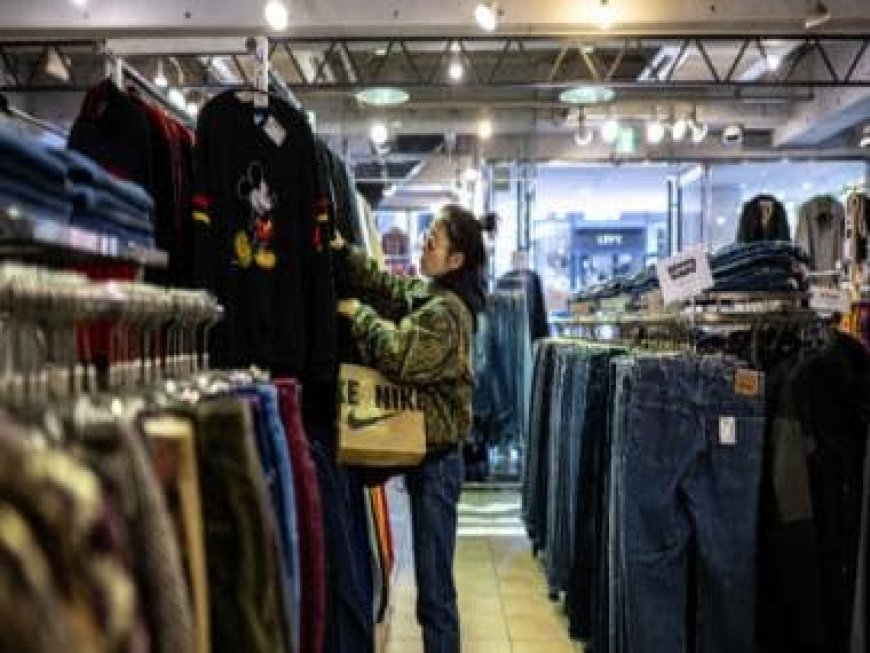Major clothing brand launches Japan's first second hand clothing store
Major clothing brand launches Japan's first second hand clothing store

The Japanese clothing giant Uniqlo opened its first second-hand pop-up store in Tokyo, which not only marked a first for the company but also suggested that the local distaste for worn clothing might finally be waning.
Leading the way in an industry that is held accountable for massive carbon emissions and other contaminants such as microplastics is Uniqlo.
It has profited from consumers purchasing and discarding an increasing amount of clothing.
However, despite growing awareness of the industry’s massive environmental impact, there is still little interest in second-hand options in Japan, the third-biggest clothing market in the world.
According to Aya Hanada of Uniqlo, a 10-day pop-up in the trendy Harajuku neighborhood, where used clothing was priced at a third of its original cost and some items were dyed for a “vintage” look, demonstrated that people’s perceptions were shifting.
“I think the feeling of resistance to used clothing has disappeared in Japan, mainly among young people,” said the 45-year-old, who works for the firm’s recycling programme RE.Uniqlo.
The change is in part thanks to the internet, she told AFP outside one of Uniqlo’s major stores, which allows customers to access items “without having to go all the way to a second-hand clothing store.”
– ‘A fashion thing’ –
There is still a long way to go, however.
In Japan, 34 percent of discarded clothing is recycled or reused, according to the environment ministry.
But this includes exports to developing countries, where the waste also often ends up in tips or is incinerated.
Globally, the equivalent of a truckload of clothes is burnt or buried in landfill every second, according to the Ellen MacArthur Foundation, a charity focused on eliminating waste and pollution.
JapanConsuming, a market research firm, estimates that the Japanese second-hand segment represents less than six percent of the $75-billion market, albeit with strong growth in recent years.
For a long time in Japan, used clothes were a small niche confined to hipsters, JapanConsuming’s co-founder Michael Causton said.
“Maybe compared to somewhere like France and UK where the ecological, environmental factors probably came first, in Japan, it was a fashion thing,” Causton told AFP.
In Japan “there is a very strong concern with hygiene, that is a fixture of Japanese culture. And that definitely was a barrier for the average consumer,” he added.
– Mercari effect –
Alongside Fast Retailing-owned Uniqlo, which touts efforts to transform second-hand clothes into new products and also donates them to refugees and others in need, used garment specialist 2nd Street has expanded to 800 stores across Japan.
There has also been growth in online sales between individuals, driven mainly by the popular Japanese platform Mercari, where around a third of transactions by value are fashion items.
Second-hand Japanese clothes are even popular in China and elsewhere, Causton said, “because people know the Japanese look after their stuff and what they will send is a high level of quality.”
“I feel like in Japan, used clothes have a high quality… and if it’s not, it’s clearly stated if there’s any damage,” said Charlotte Xu, 18, an Australian tourist looking through a thrift store in Harajuku.
“In my home country everything is just in a pile, you have got to search it for yourself. Whereas here everything is nice and neat, and you can find what you want.”
– Inflation –
Rising prices, which after years of deflation have been hitting Japanese wallets since 2022, have also helped some to drop their opposition to second-hand.
“We conducted a user survey last year and it showed that clothes was the number one voted category for purchase on Mercari as a countermeasure against rising prices,” a Mercari spokesperson said.
But the biggest factor for many is simply whether something looks good or not.
“I am aware of the sustainable side of things, but I often buy them simply because they are stylish,” shopper Yamato Ogawa, 28, told AFP at the Uniqlo pop-up.
(with inputs from AFP)
What's Your Reaction?



























































